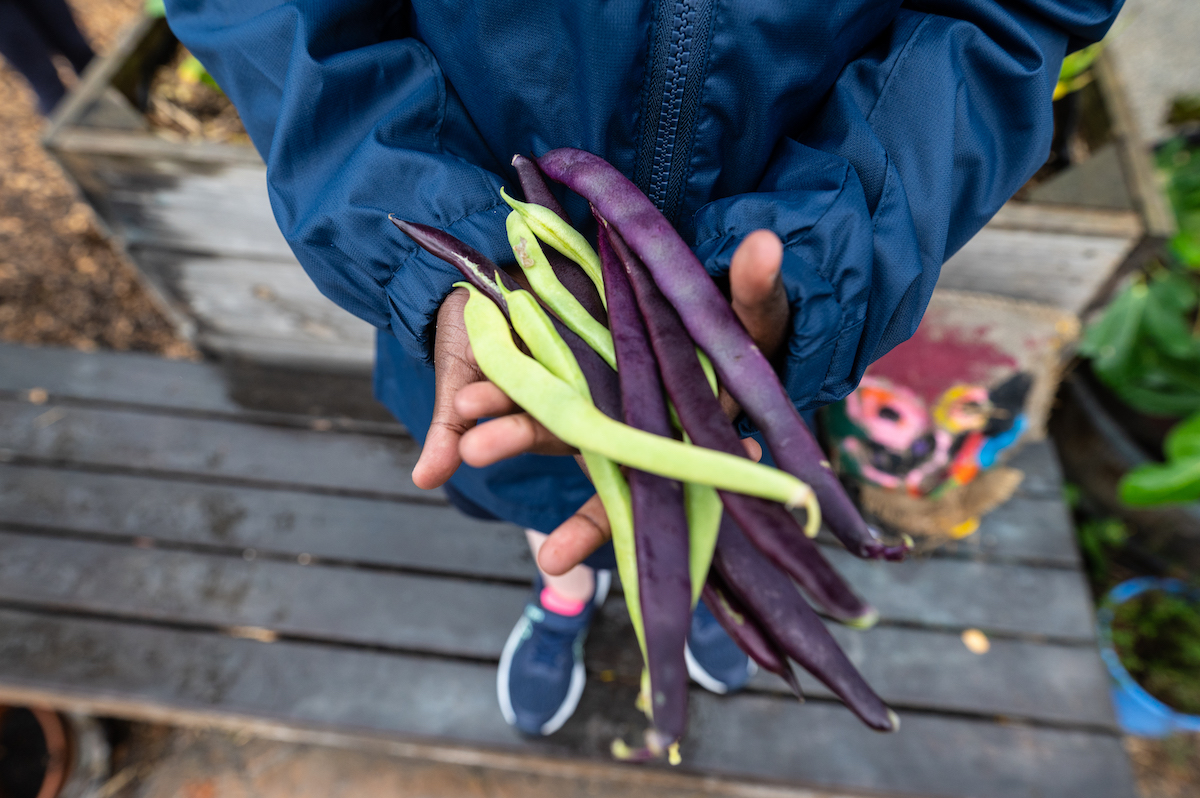World Obesity Day: everybody needs to act

This year’s theme for World Obesity Day is ‘everybody needs to act’.
Making real food fun has been at the heart of the Stephanie Alexander Kitchen Garden Program since its inception over twenty years ago – initiated by cook and restaurateur Stephanie Alexander AO as a way of combatting childhood obesity. Rather than good and bad foods, green or red traffic lights, it’s all about joy and pleasure and positive messages. Pleasurable food education in fact.
Learning to live a good food life is the one of the most accessible ways anybody, child or adult, can bring joy to their life. – Stephanie Alexander AO
This World Obesity Day, when we know for the first time in history children and young people may have a shorter life expectancy than their parents, state-wide curricula are failing to deliver effective food education, and the economic impact of obesity is increasingly burdensome, everybody really does need to act.
In financial terms, the economic impact of overweight and obesity in Australia in 2019 was estimated to be US$28.1billion – around 1.7% of GDP.
The Kitchen Garden Program enables action by giving children and young people the tools to grow, harvest, prepare and share fresh, seasonal and delicious food.
This early intervention, through fun, hands-on activities at early childhood services, primary and secondary schools, delivers huge benefits in terms of food literacy. Teaching children and young people how food is grown connects them to nature and the world around them, giving insight into food systems and sustainability, and practical skills for the future.
Schools and services are supported and guided to deliver pleasurable food education to their children, students, young people. Through resources that link to curriculum and learning outcomes, personalised support, professional development and a community of practice, each school or service can draw on the supports and different models on which to envisage, implement and sustain their own unique kitchen garden program.
And the effects ripple beyond the school and service gate. Not only do children and young people take skills and knowledge – and a joy for food – with them through life, but families and communities are also influenced by the program.
For Jennifer Green, principal at Queanbeyan High School, NSW, it’s a way of “Developing skills in growing food and expanding the palate of students”, as well as ensuring future food security for low SES families and “encouraging healthier lives due to increased nutrition”. Likewise for Caroline Lawson, kitchen garden specialist at Benarkin State School in Queensland: “I saw the potential of the program to make a significant difference to the education and lives of all the students in our small one teacher school. The school was in a low socio-economic area and children were struggling to engage.”
The highlight has always been the pleasure the children receive from this program. They tell me so, their faces beam, they are full of energy. I love the fact that the program is so inclusive, and every kid, regardless of background, size, shape or anything else can be fully engaged with this program. – Stephanie Alexander AO
The joy and enthusiasm children take in the program is evident. One kitchen garden specialist responding to a recent survey said: “Students are really the word of mouth with how much they love the program. They talk to their parents and extended families about their successes. Students love to tell me about what they have cooked at home.”
A Year 5 student at Little Hampton Primary School enthuses: “I have been lucky enough to be able to do the kitchen garden program at my school since Year 3. I enjoy it so much, it is my favourite lesson and I look forward to it every week! I love all of the skills it has taught me, like growing fresh produce in our school garden and then turning it into yummy food in the kitchen. I have learnt about recycling, looking after the environment, the importance of bees and insects in the garden, knife safety and so much more.”
The Stephanie Alexander Kitchen Garden Program’s tried and trusted recipe of pleasurable food education makes it easy for everyone to act. From the smallest of children, through to grandparent volunteers, from councils supporting the program in their local areas, to corporate partners. It is said it takes a village to care for a child, and the health and wellbeing of the next generation is being shored up by the actions of many participating in this beloved and effective program. The program is designed to move away from shameful, negative dialogue in favour of building a fun, positive relationship with food. One that encourages activity and action.
< Back to Latest News
